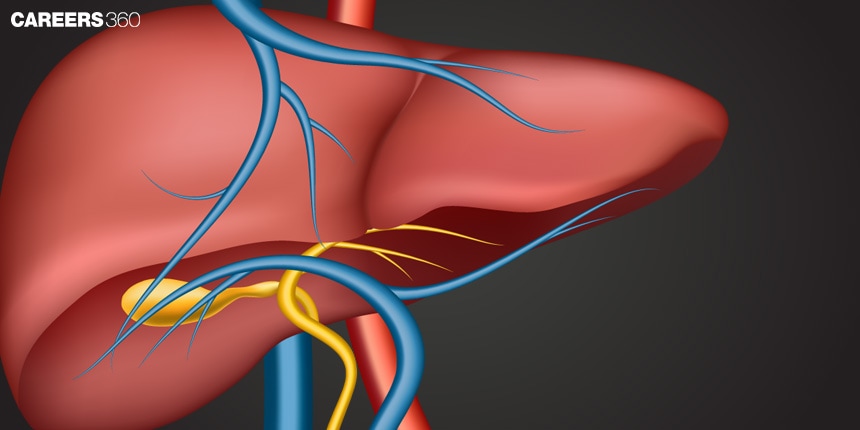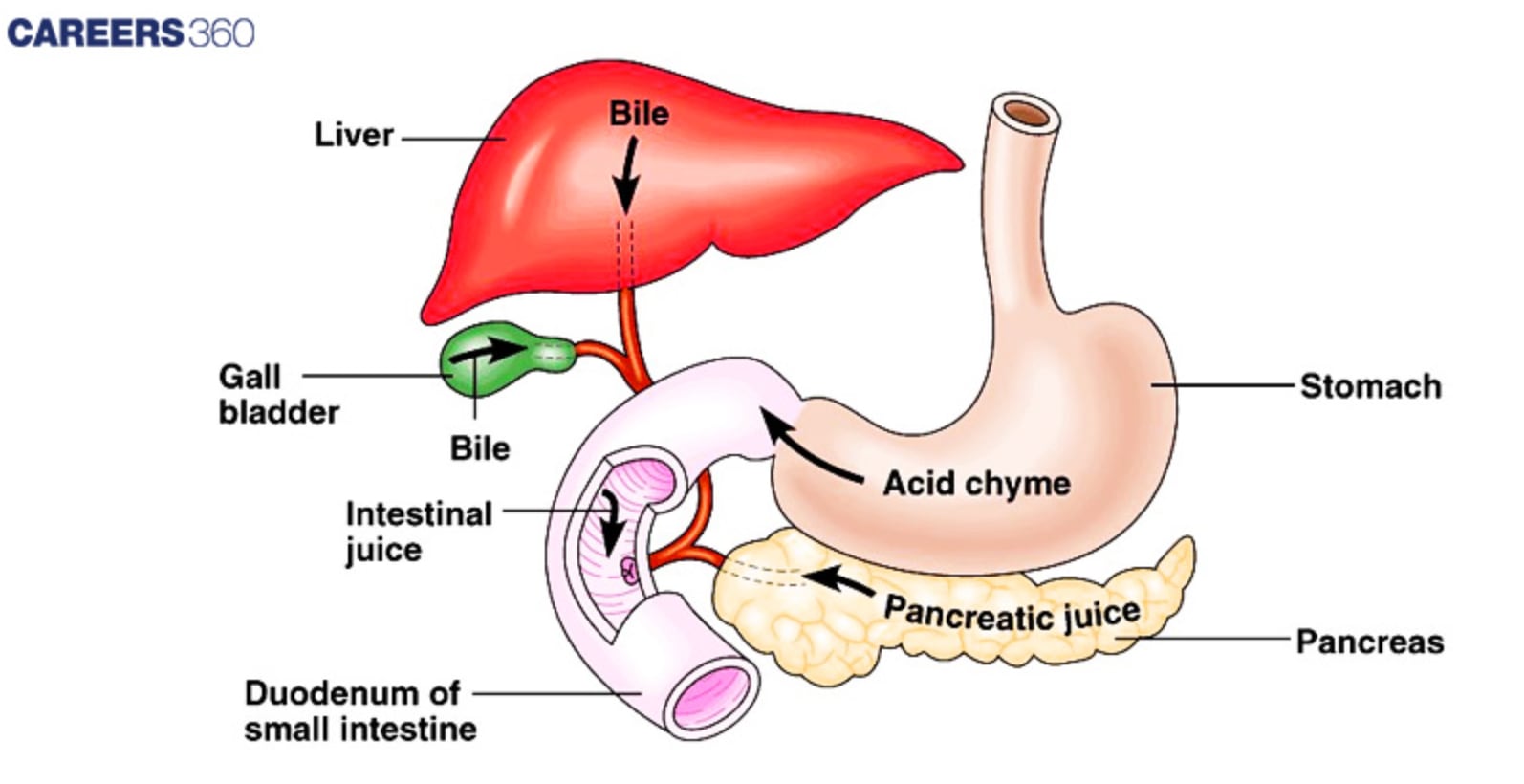Bile Juice: Composition and functions of bile juice
What Is Bile Juice?
Bile juice is not only one of the life-supporting juices in the digestive system, but it is critically essential for the digestion and absorption of fats. It is formed in the liver and stored in the gallbladder. Its main function is the digestive process—the assurance that the ingested food is well digested and absorbed by the body. This paper shall look into the composition, functions, production, and clinical relevance of bile juice.
NEET 2025: Mock Test Series | Syllabus | High Scoring Topics | PYQs
NEET Important PYQ's Subject wise: Physics | Chemistry | Biology
New: Meet Careers360 B.Tech/NEET Experts in your City | Book your Seat now

What Is Bile Juice?
Bile juice is a yellowish-green fluid produced by the liver. It is stored in the gallbladder and released into the small intestine to aid in the digestion of fats. Bile juice comprises several substances, each having some specific function in the digestion process.
Composition Of Bile Juice
The composition of bile juice is listed below-
Water
Chief constituent: about 85-90% of the bile juice.
Bile Salts
These salts, derived from cholesterol, emulsify the fats, breaking them down into smaller droplets.
Bile Pigments
Bilirubin and biliverdin provide colour to the bile; they are waste products resulting from the destruction of red blood cells.
Cholesterol
A minor component which is used in the synthesis of bile salts.
Phospholipids
Help with the emulsification of fats.
Electrolytes
Maintain the correct pH balance in the bile juice.
Functions Of Bile Juice

The functions of the bile juice have been discussed below:
Emulsification of Fats
Bile salts break down large globules of fat into smaller droplets, increasing the surface area for the digestive enzymes to act upon.
Absorption of Fat-Soluble Vitamins
Bile allows the intestines to absorb fat-soluble vitamins A, D, E, and K.
Neutralization of Stomach Acid
Bile neutralizes the acidic chyme from the stomach that reaches the small intestine.
Excrete Waste Products
Bilirubin, cholesterol, and other waste products are cleared with the body's help of bile.
Antimicrobial Properties
Bile has antibacterial properties to defend the intestines from infections.
Production And Secretion Of Bile
The production of bile is discussed below:
Function of Liver
The liver produces bile continuously, which then goes into the gallbladder.
Storage in Gallbladder
It is stored in the gallbladder and is concentrated in the bile formed in the liver. This concentrated bile is further used upon requirement during digestion.
Duodenal Release
The entry of food into the small intestine triggers the release of the cholecystokinin hormone in response to the presence of food, which in turn stimulates the release of the stored bile from the gallbladder into the duodenum.
Clinical Relevance
Some clinical defects are discussed below:
Gallstones
Hardened deposits of bile that sometimes cause pain and block bile flow. Treatment includes medication, lifestyle alterations, and surgery.
Jaundice
A condition whereby the skin and whites of the eye become yellow in reaction to too much bilirubin within the blood.
Bile Acid Malabsorption
A malabsorption disorder of the bile acids causes chronic diarrhoea and a wide array of gastrointestinal symptoms.
Role In Digestion And General Health
The healthy functioning of the digestion system is very prominently supported by bile juice through the digestion of fat, which aids in the absorption of important vital nutritional elements. Proper functioning of the liver is hence required for the adequate production of bile, thus making the health of the liver extremely important in the general digestive process.
Recommended video for "Bile Juice"
Frequently Asked Questions (FAQs)
The major constituents of bile juice include water, bile salts, bile pigments, cholesterol, phospholipids, and electrolytes.
Bile juice emulsifies the fats and thus helps in their breakdown and absorption in the small intestine.
Obstruction can lead to conditions such as gallstones, jaundice, and bile acid malabsorption, hence affecting digestion and health.
Yes, it can. The common disorders related to bile juice are gallstones, jaundice, and bile acid malabsorption.
Also Read
30 Nov'24 03:25 PM
26 Nov'24 05:38 PM
25 Nov'24 06:43 PM
25 Nov'24 05:45 PM
25 Nov'24 04:48 PM
25 Nov'24 03:52 PM
23 Nov'24 04:30 PM
23 Nov'24 10:03 AM